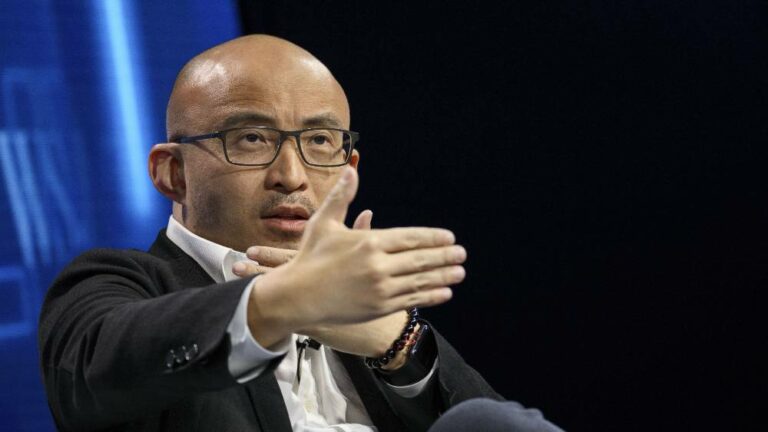Another Chinese billionaire and dealmaker has gone missing, plunging one of the country’s top investment banks into turmoil.
Bao Fan, the founder and executive director of China Renaissance Holdings Ltd., is a major figure in the Chinese tech industry and has played an important role in the emergence of a string of large domestic internet startups. The bank announced to the Hong Kong stock exchange last week that it had been unable to contact Bao, without giving further details. And the stock plunged 50% at one point after the statement.
China Renaissance has developed into a global financial institution, with more than 700 employees and offices in Beijing, Shanghai, Hong Kong, Singapore and New York. Bao founded the bank in 2005 after working at Morgan Stanley and Credit Suisse. He competed against Wall Street stalwarts to win mandates on huge deals and stock market listings. The group has supervised the initial public offerings of several domestic internet giants, including that of the leading e-commerce firm JD.com. Bao also facilitated a 2015 merger between the ride-hailing firm Didi and its main rival at the time, Kuaidi Dache.
China Renaissance is currently ranked ninth on China’s equity capital markets league table for 2023, after it advised on Jiangsu Sanfame Polyester Material’s $363 million convertible bond last month. The firm earned $20.6 million in Chinese related investment banking fees in 2022, down from $43.13 million a year earlier, the data showed. Bao started China Renaissance in 2005 as a two-person team, seeking to match capital-hungry startups with venture capitalist and private equity investors. Since then, it expanded into services including underwriting, sales and trading. The investment bank made its market debut in Hong Kong in 2018 after raising $346 million.
Reminiscent of a Pattern
Bao’s disappearance comes days after property developer Seazen Group Ltd. said it was unable to contact or reach its vice-chairman. Now again it is raising concerns over a possible renewed crackdown on China’s finance industry as President Xi Jinping persists in his longstanding campaign against corruption. The Chinese government has cracked down on several big industries, including technology, education and real estate, as part of Xi’s “common prosperity” drive to “keep income distribution and the means of accumulating wealth well-regulated”.
At least six billionaires have been cowed under Xi, including Jack Ma, the founder of the e-commerce giant Alibaba, who disappeared for many months last year after criticising market regulators. China’s foreign ministry says that China is a country under the rule of law and the government protects the legitimate rights of its citizens in accordance with the law.
The case of China Renaissance is reminiscent of a pattern of investigations into the country’s leading financiers in recent years. In 2017, the Chinese-Canadian businessman Xiao Jianhua was arrested by mainland authorities and received a 13-year jail sentence under corruption charges last August. He was abducted from his Hong Kong hotel room by plainclothes police officers from Beijing. At the time of his arrest, Xiao was one of the richest people in China, with an estimated fortune of $6bn. China Renaissance president, Cong Lin, was taken into custody last September as authorities launched an investigation into his work at the financial leasing unit of the state-owned bank ICBC.
In 2015 alone, at least five executives became unreachable without prior notice to their companies, including Fosun Group Chairman Guo Guangchang, who Fosun later said was assisting with investigations regarding a personal matter. The Chinese Communist Party (CCP) in 2021 turned its sights on the country’s vast financial sector, kicking off a new round of a years-long regulatory crackdown.






















